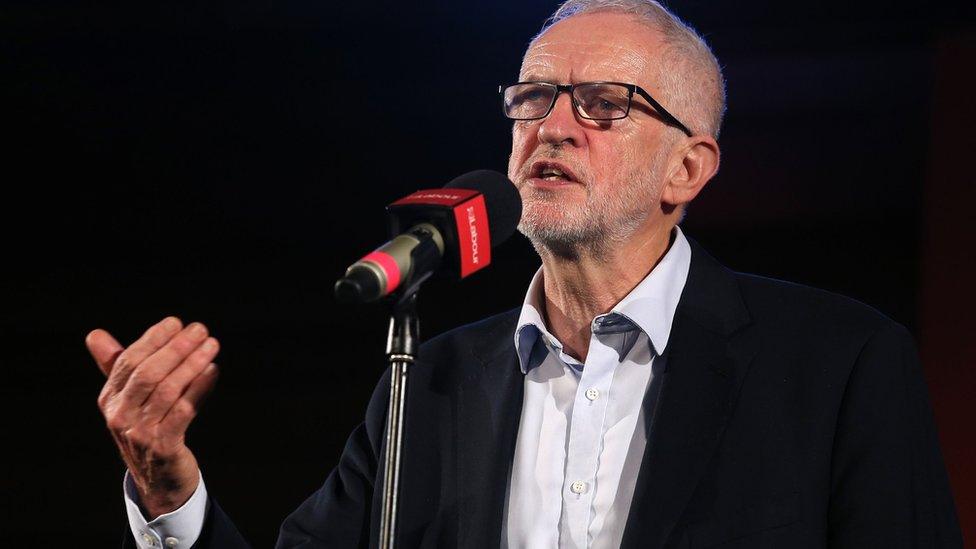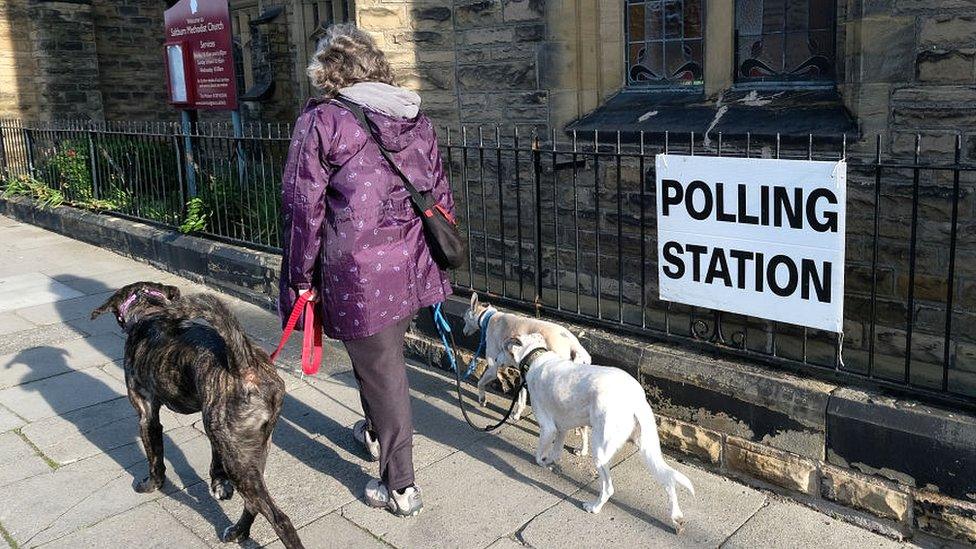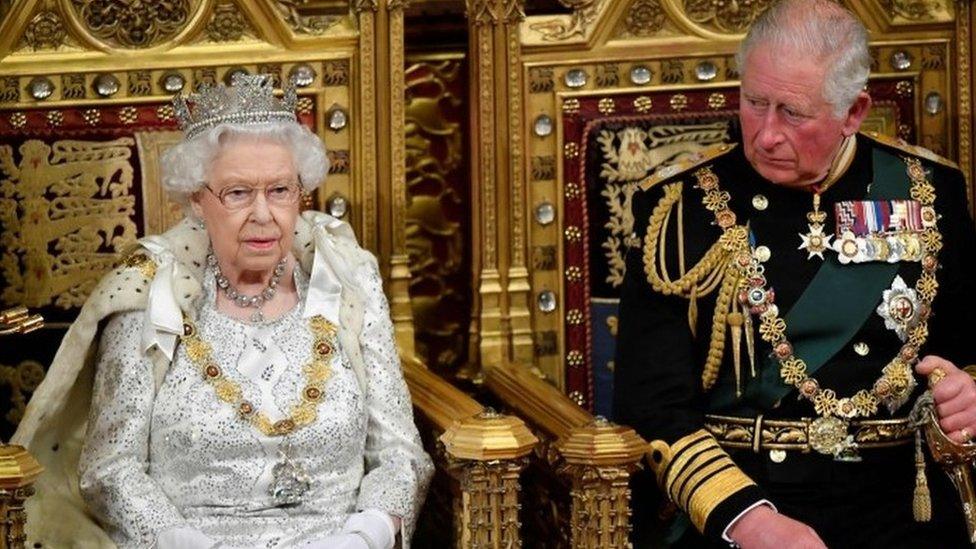Corbyn: Voter ID plans discriminate against ethnic minorities
- Published
- comments

Jeremy Corbyn made the comments at a rally after the Queen's speech
Plans to make all UK voters prove their identity will "disproportionately" discriminate against ethnic minorities, Labour leader Jeremy Corbyn has said.
The government outlined plans in the Queen's speech on Monday to require people to bring photo ID to polling stations in order to vote.
Mr Corbyn claimed the move was an attempt to "suppress voters" and "rig" the next general election result.
Ministers say there will be free ID for people who can't prove their identity.
However, people will still have to apply to their local councils for the documents as an alternative to other forms of approved photographic ID, such as passports and driving licences.
The proposals follow two trials which involved five areas in England during council elections last year and 10 areas in May this year.
During the first trial, about 340 people were turned away from voting and did not return with ID, compared to about 750 people in the second trial. That represented less than 1% of eligible voters in both trials.
Currently, only voters in Northern Ireland have to show photo ID before they can cast their vote.
Speaking at a rally on Monday, shortly after the Queen's speech, Mr Corbyn said the plans were a "blatant attempt" by the Conservative Party to "deny people their democratic rights".
He added: "The people that the Tories are trying to stop voting will be disproportionately from ethnic minority backgrounds, and they will disproportionately be working class voters of all ethnicities."
What did we learn from the Queen's Speech? The BBC's Helen Catt explains
Research in 2015 by the Electoral Commission, the independent body that sets the standards of elections in the UK, indicated that about 3.5 million citizens, or 7.5% of the electorate, did not have access to any approved photo ID.
The research suggested that women are considerably less likely than men, and black people considerably less likely than white people, to have a driving licence.
Certain ethnic groups such as Gypsies and Irish Travellers are also much less likely than the average to have a passport, it found.
The government said the plans would help give the public confidence that elections are "secure and fit for the 21st century".
Commons leader Jacob Rees-Mogg told LBC the practise of showing ID has been used for many years in Northern Ireland and the "integrity of the voting system is important", particularly in regard to postal voting.
While there would be "administrative inconvenience" for people who don't currently have any other documents, he said people would not have to pay for them.
Any changes to the rules would require new legislation, the Cabinet Office has confirmed, making it extremely unlikely it will happen if there is a snap election later this year.
Boris Johnson does not have a majority in the Commons, meaning his ability to pass new laws is extremely limited without the support of the opposition.
'Marginalised'
Campaign group the Electoral Reform Society said its research suggested there were only eight allegations of impersonation made out of the millions of votes cast during council elections in 2018.
Its chief executive, Darren Hughes, said 3.5 million voters did not have access to photo ID, making them vulnerable to missing out.
"When millions of people lack photo ID, these mooted plans risk raising the drawbridge to huge numbers of marginalised voters - including many elderly and BAME (black, Asian and minority ethnic) voters," said Mr Hughes.
However, Conservative Party chairman James Cleverly accused Mr Corbyn of "sowing the seeds of division".
"If anything, tougher checks against electoral fraud will protect the democratic rights of all communities," Mr Cleverly added.
- Published11 May 2021

- Published14 October 2019
